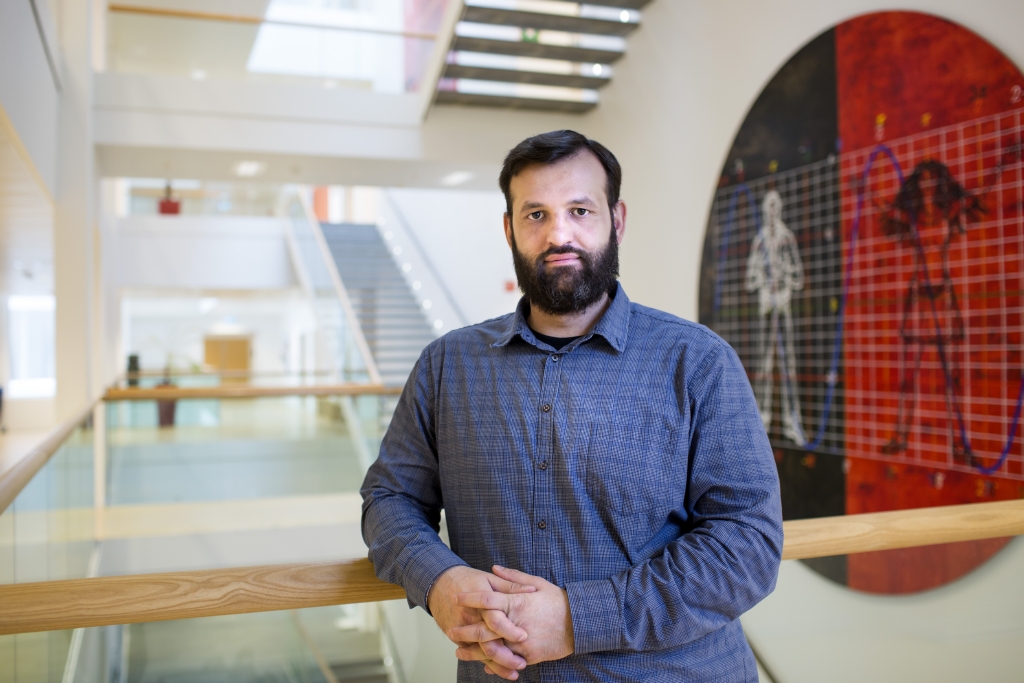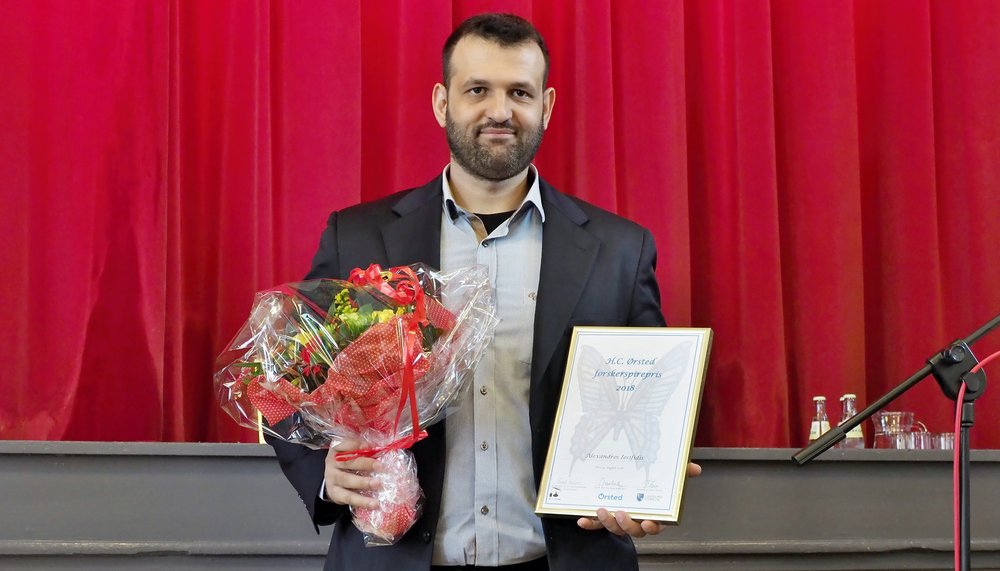This year’s Ørsted award goes to machine learning expert
Alexandros Iosifidis from the Department of Engineering at Aarhus University has received the Hans Christian Ørsted Forskerspirer Award 2018 for his scientific work on signal processing and machine learning.

Alexandros comes from Greece and he has been in Denmark for just one year. His knowledge about the great Danish scientist and philosopher is sketchy, but he is proud to receive the Hans Christian Ørsted Award for his contribution to science.
"It is recognition of my research and my work on statistical machine learning and neural networks, and on developing mathematical models that can improve the performance and efficiency of machine learning we know today," says Alexandros Iosifidis, an assistant professor at the Department of Engineering, Aarhus University.
READ ALSO: Experimental funding for bold new engineering projects
At an age of just 34 years, he has more than 100 publications in international scientific journals and conferences in topics of his expertise behind him.
(The article continues below the picture)

Alexandros Iosifidis receiving the Hans Christian Ørsted Forskerspirer Award 2018 for his scientific work on signal processing and machine learning (photo: Ørsted)
A pioneer behind intelligent recognition of human actions
Alexandros is one of the pioneers behind the recognition of human actions through images and videos. In his academic career, he has worked on several research projects applying this technology to many different areas.
In one project for example, he has worked on prolonging the independent living for elderly based on machine intelligence solutions in their homes. In another project, he has developed algorithms for the financial sector. And in a third project, he has enabled production robots to work with people.
ALSO READ: Research project identifies huge productivity potential in construction
He is currently working with drones, and his goal is to improve the ability of these flying robots to analyse visual information from the air, understand what is going on in their environment and then make smart decisions.
All this, is basically about signal processing, which makes it possible for a computer to analyse signals with a degree of precision that is simply impossible for a person to achieve.
"We train the computer to analyse information having different forms, like images, videos, sensor signals and text, to detect patterns in data, group and classify these patterns and make predictions in efficient ways," says Alexandros Iosifidis.
Wants to automate and democratize machine learning
Together with his research colleagues, he is opening the next chapter of the history of technology, in which the goal is to automate and democratize machine learning.
ALSO READ: Engineering student develops bioreactor to grow heart valves from human cells
"A higher degree of automation. That’s our goal. Today, machine learning is still controlled by input from experts. For example, take the camera in your Smartphone. It can recognise faces. This means that the camera has a method to identify different elements in the images. It’s been trained, so to speak, to distinguish between the patterns of faces and patterns of objects and the background. But this doesn’t happen automatically. Experts have designed all the details of the system that makes the method for this recognition and distinction possible. That’s what we want to change. We want the computer to be able to automatically find all these details," he says.
Computers will take over the trivial work
This level of automation is also a technological step that will make machine learning available and usable by non-experts in everyday life. So far, we have no idea where this could lead. But according to Alexandros, the starting point for the development is very positive.
"Computational Intelligence will come to play a much larger role in our daily lives. Machines will take over many automated functions, and we humans will be able to release our own resources for other purposes. We’ll escape from all the trivial work and we’ll be able to apply our intellect and creativity in better ways," he says.
Contact information
Assistant Professor Alexandros Iosifidis, Department of Engineering, Aarhus University
